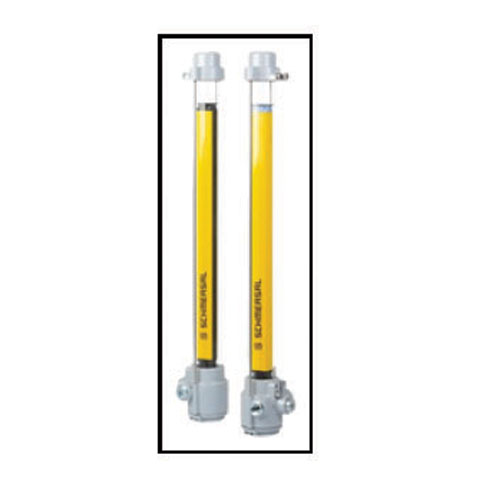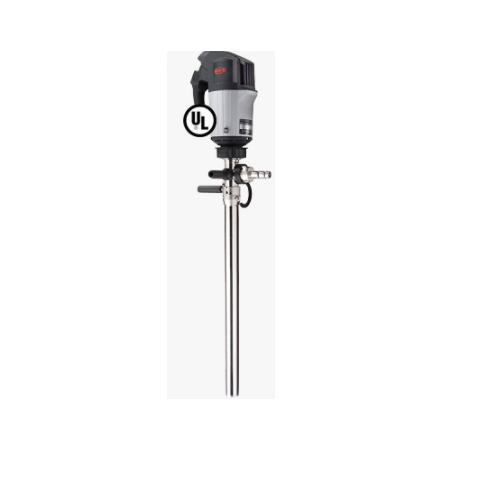Schedule a Call Back
Indian SMEs have a lot of catching up to do
 Interviews
Interviews- May 04,16
The Kaizen Institute Consulting Group (KICG) recently presented ‘Indizen – The National Convention for Operational Excellence’ in Pune with the theme ‘Making Zero Defect and Zero Effect a Way of Life’. Excerpts from an interview with Vinod Grover, Founder Director, KICG.
 How does the Kaizen Institute Consulting Group (KICG), India help companies achieve operational excellence? Is it through awareness conventions alone or also through one-to-one training programmes, etc.?
How does the Kaizen Institute Consulting Group (KICG), India help companies achieve operational excellence? Is it through awareness conventions alone or also through one-to-one training programmes, etc.?
KICG’s core competence has always been supporting implementation of contemporary operational excellence practices. Awareness conventions and training programmes are merely an attempt to reach out to prospective companies and to prompt them towards real-life implementation. After all, it is not theory and knowledge alone that brings about excellence; it is real application of that knowledge inside companies!
Generally, KICG support starts from carrying out a ‘current state assessment’ of organisational operations. This assessment helps us find opportunities for improvement and enables us to design a roadmap towards a ‘future state’ that meets organisations’ business goals. Measurable key performance indicators track progress as implementation goes on. When the first round of ‘future state’ is realised, it is time to plan for a ‘future state 2’ and drive the second cycle of improvements. The process of implementation support from KICG is designed to create sustainable results and to build internal capabilities within organisations, so that the unending journey of operational excellence continues.
Could you elaborate about KMAX?
KMAX (Kaizen Institute’s Maturity Assessment for Excellence) is a nationwide search to identify and reward India’s companies for operational excellence. Launched in February at Indizen 2016, the 7th national convention on operational excellence, KMAX 2016 is a year-long initiative that will involve a phase-wise process beginning with a call for entries in March 2016, proceeding to a comprehensive short listing and assessment, leading to an esteemed jury declaring the winners and culminating in a grand awards ceremony to felicitate the winners in 2017.
Manufacturing facilities of companies across sectors and ranging from small to large-sized businesses that have been practicing any operational excellence system for at least two years will be eligible to participate in the inaugural edition of KMAX. This eligibility criterion will hold good for first-time participants in the subsequent editions of KMAX as well. When organisations apply for reassessment towards the same or higher level in the future editions of KMAX they will have to be practicing operational excellence for at least a year after qualifying for the previous level of maturity. A KMAX award will have a validity of two years.
What sets KMAX apart from other assessment models and awards is that the actual gratification for participating companies will be the value it creates for their businesses by embarking on a quest for excellence; the recognition will serve as an added incentive. In the global context, as manufacturing organisations adopt any operational excellence practice – be it Lean, TPM®, Six Sigma, Kaizen™, TOC or a mix – they soon hit a plateau. Some stop progressing, many start lapsing back! This is because operational excellence is not an identifiable destination; it is a journey of continual improvement towards a moving target. You never arrive; you just develop new capabilities and target newer milestones! Therefore, in our experience, practicing companies periodically want to know answers to the following questions: a) Is our manufacturing operation globally competitive? and b) If not, what are the gaps? What do we need to do to bridge those gaps?
KMAX is designed to attempt intelligent, expert answers to both the above questions. In the Indian context, manufacturing constituted only 15% of India’s GDP in 2014. There is an endeavour to increase it to 25% by 2025 in order to provide jobs to India’s young population. ‘Make in India’ is Government of India’s policy response to make this happen. Setting up manufacturing enterprises can only be a beginning. If Indian manufacturing has to survive and grow, it will need to be globally competitive. KMAX supports India’s overall objective of becoming a globally competitive manufacturing destination by:
* Providing a globally benchmarked framework for assessing manufacturing organisations in their journey to global competitiveness in operations; and recognising their achievements by recognitions/medals.
* Providing action guidelines to interested organisations for progressing to the next stage in their journey of excellence.
In today’s competitive scenario, what are the factors that are a must to achieve high standards of production, quality and distribution in the manufacturing sector?
Assuming that the manufacturer’s products meet stated/unstated needs of a customer, it can remain competitive in the long run only if the leadership lives, leads and drives organisational improvement based on the following five values: customer orientation; people (employee) orientation; process (and result) orientation; workplace orientation; and scientific orientation. This is easier said than done because many of our traditional thinking, systems and practices are not aligned to these values.
What are the new theories being propagated to achieve yet better standards of excellence?
There are no new theories but new realisations by practitioners for success. These are:
* Operational excellence’ is not a destination; it is a journey.
* A journey of operational excellence is actually one for change of organisational culture.
* Tools, fads and buzzwords don’t drive improvements. Enlightened leadership does!
* There are no readymade solutions to problems to be cut-pasted from elsewhere. They have to be evolved, customised and applied by us for our situations.
* Yesterday’s success is no guarantee for tomorrow’ success!
* Social responsibility (like being environmentally conscious) is everyone’ job (and not just that of the government).
* A successful organisation is a ‘learning organisation’. Else, at today’s rate of change, obsolescence is a real possibility!
How do Indian manufacturing companies compare in performance with those in the developed world?
Generalisations are inaccurate and risky. However, the best in India are comparable to the best in the world. However, on an average, Indian organisations are not as productive as those in the developed world. Also, Indian SMEs have a lot of catching up to do.
Could you cite a case study that illustrates how zero defect-zero effect can be achieved?
I would like to give the example of ITC. Given the scale and spread of the company’s operations across India, its contribution in the direction of zero-effect has been significant. ITC has well articulated ‘sustainability policies’ which are in the public domain. ITC has addressed the critical area of climate change mitigation through several initiatives. These include continuous improvement in energy efficiency, enhanced use of renewable energy, certified green buildings, increase of water use efficiency, rain water harvesting, and increase in reuse and recycling of waste.
What are the parameters against which industries must benchmark their performance?
If we look at the terms frequently used in operational excellence practice – TQM (Total Quality Management), TPM (Total Productive Maintenance), Zero Defect and Zero Effect – the answer to your question is very clear! The words ‘total’ and ‘zero’ signify ‘perfection’. So, the benchmark is relentless pursuit of perfection. That is why the word ‘Kaizen’ is key to operational excellence – continual improvement.
How does this approach translate into profitability and savings?
Operational excellence pursues customer-focused objectives of improving quality, cost and delivery performance. As quality enhances, costs associated with wastes relentlessly go down and customer needs for ‘on-time, in-full’ deliveries are met – the natural corollary is happier customers and cost savings accruing to the practising organisation. If these cost savings are not passed on to the customers or other stakeholders, enhanced profitability is the natural outcome. Operational excellence is always driven by business goals.
– HUNED CONTRACTOR
Related Stories

Honeywell Launches Hybrid Heating to Cut Industrial Energy Costs and Emissions
Honeywell’s Hybrid Heating Solution enables manufacturers to switch between gas and electric heat in real time, helping optimise energy costs, cut emissions and support the energy transition.
Read more
Minda Corp Posts Record Q3 Revenue of Rs. 15,600 Mn, EBITDA Improves
Minda Corporation reported its highest-ever quarterly revenue in Q3 FY2026, driven by strong demand, portfolio strength and improved margins, alongside key leadership appointments.
Read more
Texas Instruments Opens New Semiconductor R&D Centre in Bengaluru
Texas Instruments has inaugurated a 550,000-sq-ft R&D centre in Bengaluru, marking 40 years in India and reinforcing its commitment to semiconductor design and innovation.
Read moreRelated Products

Amusement Park Equipment- White Water Ride
SICCO Engineering Works offers a amusement park equipment- white water ride.

Safe Signal Processing
Insys Electrical & Controls offers a wide range of
safe signal processing.

Nylon Coated Roller
Jekmin Industries offers a wide range of
nylon coated roller.











